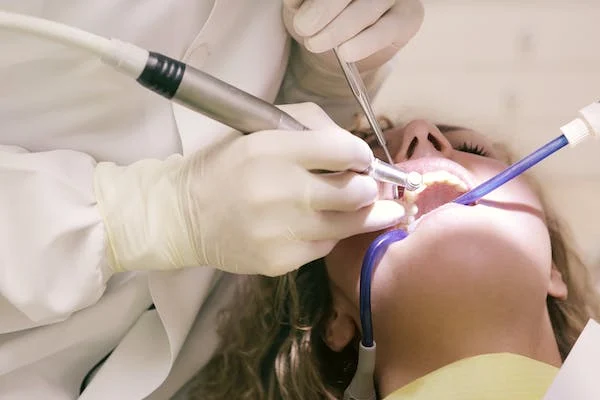Answering the question about “how much is a root canal” can be complicated. The average fee for a Root Canal expert is depending on the tooth and its location. Treatment for the front teeth is typically less expensive than the back teeth. Some insurance plans may partially cover a root canal specialist, but confirming this with your insurance company is vital.
Many people are afraid of visiting a root canal specialist because they expect it to hurt. However, if your dentist suggests one, it’s likely that a crack, cavity, or infection in your tooth is the reason for your current tooth pain. Contrary to popular belief, root canal therapy reduces dental pain by removing the infected pulp. Hopefully it won’t hurt your money too badly either. Read on to learn more about this, the advantages and disadvantages of doing it, and how much it will probably cost you.
A root canal, what is it?
An alternative to surgery for treating a fractured or infected tooth is a root canal specialist. An endodontist, a type of dentist who works below the tooth’s surface, treats the infected pulp to save the tooth. The goal is to eliminate the germs and the tooth’s dead or dying tissue. Preserving the tooth to avoid extraction is the main objective.
The endodontist checks your tooth initially and talks with you about its state, including the health of the blood vessels and connective tissue inside the tooth. The process typically proceeds in two steps after that:
- Removal: An injection of anesthetic is administered to make the mouth numb. The pulp, or soft tissue, is located in the middle of your tooth, and is made visible after the endodontist drills it. The contaminated pulp is removed using small files and the canals (passages) inside the tooth’s root are cleaned. The endodontist may put a top seal to protect the tooth or a temporary filling for the tooth roots.
- Restoration: Rather than going to the endodontist in a few weeks, you’ll probably see your regular dentist to address the inflamed area first. To safeguard the cleansed root and the remaining tooth, you will receive a permanent filling or a crown (artificial tooth).
Root canal treatments The procedures for treating tooth issues are generally similar regardless of whether the tooth is in the front, back, or bicuspid (the teeth before your molars), especially when dealing with an abscess. A tooth that has already undergone root canal therapy will have retreated. Then, the dentist cleans the canals and does a further examination after removing any prior restorative work. Some recent treatment options involve dental water lasers or ultrasonic energy cleaning the canals. According to the device’s creators, these modes promote quicker healing and require fewer appointments.
How much is a root canal surgery usually going to cost?
Several variables, including the influence of root canal fees:
- Your mouth’s placement of the tooth
- Regardless of whether you visit a general dentist or a specialist like an endodontist, you should address any untreated issues promptly.
- Whether it’s a first-time root canal or retreatment (a second root canal on a previously treated tooth) (a second root canal on a previously treated tooth)
- Whether it’s an emergency or routine root canal
- Whether a crown is necessary
- Whether your insurance entirely or partially covers the surgery
- Where you live
Front teeth are more accessible to the dentist, making it easier to treat issues like decay. Thus root canal specialists there are less expensive. Your premolars, also known as bicuspid teeth, come before your molars. As you may assume, they tend to be more pricey than front teeth and less costly than molars.
What is covered by a root canal’s price?
Typically, the cost of a root canal surgery includes all appointments, including:
- X-rays or other imaging
- Anesthesia costs
- Procedure for root treatment
- However, you may have to pay more for the consultation. A new filling or a crown is probably not included in the cost of the root canal and the final tooth repair.
Your dentist might advise getting a crown if the root canal is in a molar. Supported by a root canal specialist, the tooth has a better chance of surviving if the infected pulp is treated promptly. However, costs vary depending on the materials. Crowns can be made of porcelain fused with metal, ceramic, zirconia, or metal.
A root canal: Is it worthwhile?
A root canal therapy is one of two effective treatments for tooth pain caused by decay. However, the choice is to remove the tooth altogether, necessitating an expensive dental implant.
The benefits and drawbacks of getting a root canal are listed below.
Pros
- keeps your natural tooth for chewing and cosmetic purposes.
- Reduces swelling, dental pain, and extreme sensitivity to cold or heat in the teeth
- less time, money, and risk to neighboring good teeth and gums than extraction and replacement of the tooth.
- It likely won’t hurt as much as an extraction.
Cons
- two or three 90-minute visits might be necessary.
- If the illness spreads, taking antibiotics after the procedure can be required.
- Concerns such as tooth loss, fracture, nerve injury, or infection could develop if the untreated pulp is not addressed.
- May result in tooth discolouration
How long do a root canal’s effects and advantages last?
Permanent relief is intended to be given by a root canal specialist. However, occasionally the tooth needs to be treated because it has relapsed with infection, inflammation, or other unpleasant symptoms months or years later.
This is possible because of:
- initial treatment fails to eradicate the current illness or inflammation successfully
- fresh infection
- a broken crown or tooth
- Putting off adding a necessary height too long
In this situation, retreatment with endodontic surgery might be able to salvage the tooth. To thoroughly clean and examine the inside of your tooth, the endodontist removes your crown and any restorative materials. The endodontist then finishes filling the canals. However, the endodontist might recommend endodontic surgery if you can’t reach your channels for appropriate cleaning.
By halting infection and removing damaged tissue from your sore tooth, a root canal procedure can help you regain oral health. Its price depends on where the tooth is located and whether you require a crown. Check the specifics of your policy. If you have dental insurance, it should at least partially cover the cost of the procedure. To learn more, see us at Cascade Dental!




